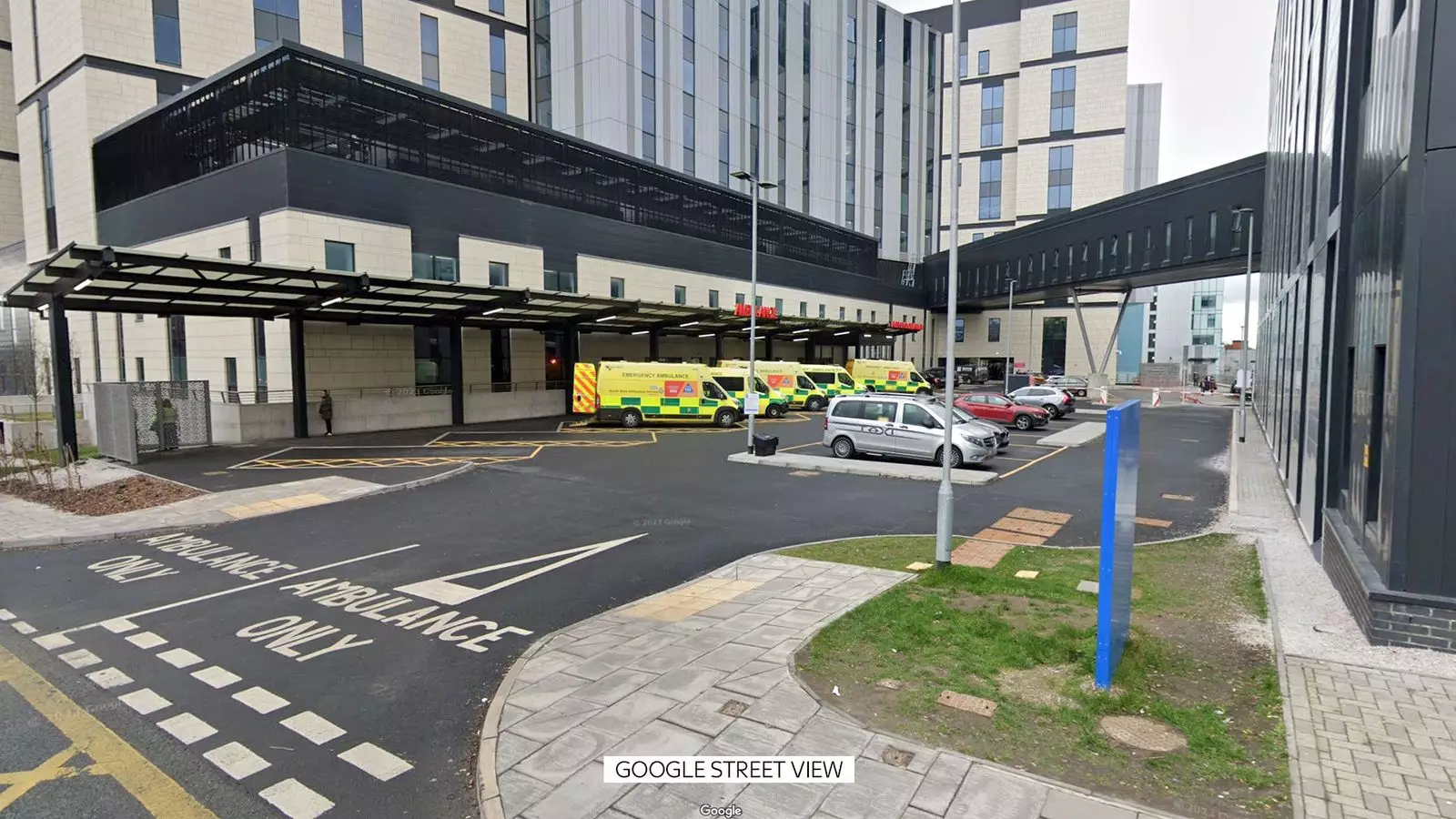The Royal Liverpool University Hospital has announced a critical incident due to an overwhelming rise in patient admissions, primarily attributed to a surge in influenza and respiratory illnesses. This development reflects a broader challenge facing hospitals across England, as the number of flu cases has alarmingly increased fourfold within just a month. As the largest healthcare facility in Merseyside and Cheshire, the Royal Liverpool University Hospital’s situation is particularly concerning, as it underscores a significant strain on emergency departments and patient care services.
The declaration of a critical incident is not a routine occurrence; it signals distress within the healthcare system. As explained by the hospital’s spokesperson, this status permits them to implement urgent measures, prioritizing care for the most severely ill patients while managing the logistical challenges posed by such high demand. Services that are not emergencies are being redirected toward alternative care options, including GP services, community pharmacies, and walk-in centers. This strategy aims to alleviate pressure on the emergency room, allowing healthcare providers to focus resources on those who need immediate attention.
Stressed Systems and Collaborative Solutions
In light of this crisis, the hospital is collaborating with various partner organizations to expedite care for patients ready for discharge. This cooperation is crucial in mitigating the adverse impact of high admission rates, ensuring that medically stable patients can leave the facility without undue delay. Such measures not only help manage bed occupancy but also create space for new patients requiring urgent care.
The situation at the Royal Liverpool University is echoed in other regions, such as Cornwall, where a similar critical incident was declared by the NHS Cornwall and Isles of Scilly Integrated Care Board. This widespread trend points to a system-wide issue that may be exacerbated by the so-called “quad-demic” scenario, where multiple respiratory illnesses, including flu, COVID-19, and norovirus, circulate simultaneously. Public health officials have pointed to the necessity of vaccinations against these illnesses, particularly for at-risk populations.
Public Awareness and Health Guidance
As hospitals navigate these challenging waters, public awareness becomes crucial. The Royal Liverpool University Hospital has made it clear that the presence of so many individuals with non-life-threatening conditions could prolong wait times for those in urgent need. In communicating this, they advise potential patients to seek assistance from primary care providers when possible. This guidance is essential in preserving the integrity of emergency services during peak periods.
As winter unfolds and cases of flu and respiratory diseases continue to rise, ensuring that the public is informed about the available health resources will be integral to managing hospital capacities. The NHS’s proactive measures, including vaccination campaigns, aim to reduce the burden on emergency departments and support communities in navigating health challenges.
The critical incident at the Royal Liverpool University Hospital serves as a stark reminder of the fragility of our healthcare systems during peak illness seasons. Collective efforts and public cooperation will be key in traversing these heightened demands on health services.


Leave a Reply